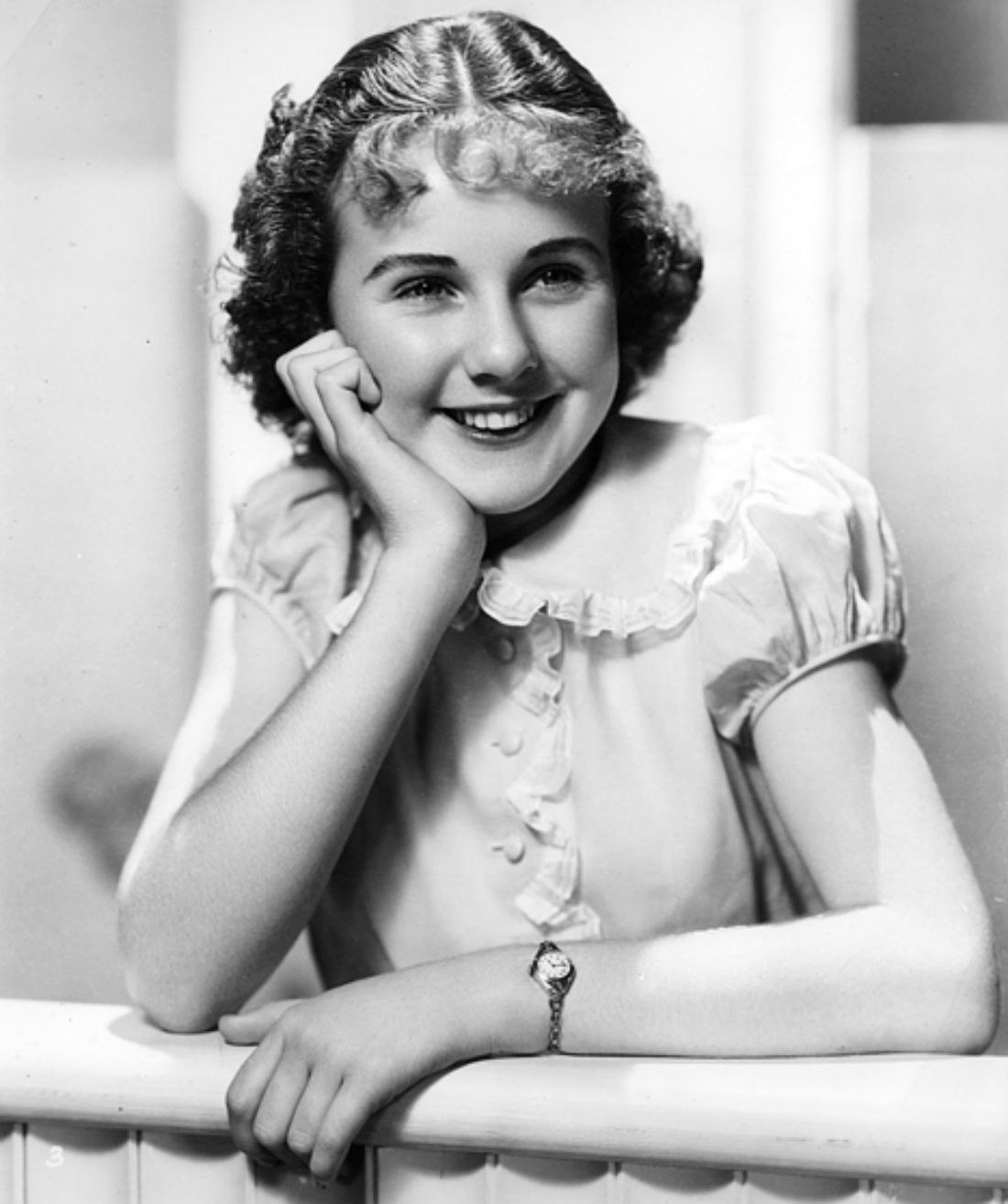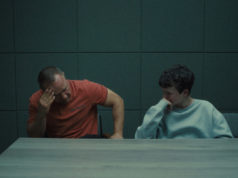I’m interrupting my series of Django Unchained posts to bring you this piece of movie news: The passing of Deanna Durbin at the age of 91 was announced by her son through a newsletter for his mother’s fans. If you’re under 85, you may well have read that and asked, “Who?” She was one of the world’s biggest movie stars in the 1930s and ’40s, and she started out before she was a teenager.
Her career is often discussed in conjunction with Judy Garland’s, and not just because they were born a few months apart. They performed together in an MGM short film called Every Sunday. The apocryphal story goes that MGM mogul Louis B. Mayer saw the film and instructed his underlings to fire “the fat one,” meaning Garland, only the flack misunderstood and fired Durbin instead. Whatever the studio’s real reasons for letting her go, for a few years it looked like MGM made the wrong move. Durbin promptly went to Universal Pictures and starred in Three Smart Girls, a wildly successful musical comedy that won a Best Picture Oscar nomination and saved its studio from ruin. She was all of 14 years old. That movie’s success led to a string of similar films that showcased her talent for singing; her high, light soprano was particularly well-suited to operetta and ballads. She and Mickey Rooney were awarded a special Oscar in 1938 for “bringing to the screen the spirit and personification of youth.” However, she grew dissatisfied with the relentlessly wholesome material and monotonous roles she was handed. Offscreen, when she tried to marry a second time, Universal pressured her not to go through with it and instead remarry the husband whom she had divorced. She wound up retiring from show business in 1948 and never returned, raising a child and living quietly, and staying married to that second husband for almost half a century. Meanwhile, Judy Garland was allowed to grow up onscreen and take on roles that acknowledged her becoming a woman, and as a result her movies are far better remembered than Durbin’s.
And if Garland had enjoyed a long life and productive career, this would have made for a tidy little morality tale, but we all know that’s not what happened. (Too bad Garland and Durbin were broken up, too. They made a pretty nice team.) Surveying Durbin’s movies, which are filled with teenagers who never smoke, drink, curse, have sex, or do anything remotely objectionable, it’s striking how little our fantasies have shifted about the world we wish our kids, and especially our girls, occupied. Seriously, if Durbin ever caught the High School Musical series, she would have found it awfully familiar. I can’t help but think about the way she left her career when I look out and see all these actresses who get pigeonholed into these good-girl roles before they’re old enough to drive and then are stuck there until they’re 30. Is it any wonder that so many of them act out in public or see the need to break with their pasts as radically as possible (see: Spring Breakers)? Don’t get me wrong; in many ways, women have it much better now than they did in 1936. Still, it’s depressing to see so many young actresses today being pushed into the same constraining box that made Deanna Durbin walk away.
If you want to check out what Durbin was about, many of her films can be seen in their entirety on YouTube. I would recommend Christmas Holiday, which despite its title is a dark and moody thriller directed by Robert Siodmak, who would go on to a distinguished career in film noir. This film was made during the tail end of her career, when she was 22. She portrays a nightclub hostess who marries a charming playboy who turns out to be a compulsive gambler and a killer. (He’s played by Gene Kelly, cast unsuccesfully against type.) Instead of her usual operetta fare, Durbin sings “Spring Will Be a Little Late This Year” and doesn’t sound out of place in a jazzy song. Actually, she sounds bored, but her character is supposed to be bored as she sings it. Her crisp presence and instinctive sense of timing are evident in all her movies, but here she gives a creditable performance as a woman who still loves her husband even after finding out what he really is. Seeing this, you can’t help but wonder what else she might have accomplished as a grown-up performer. But she chose peace of mind and a family, and lived long and presumably well. That, and the performances she left us, are worth celebrating.













Excellent article. Just one correction: Deanna was married three times. Her second marriage was to director Peter Jackson, by whom she had a daughter, Jessica. But the marriage only lasted for two years. In the late 1940s, Deanna had “had it” with the Hollywood machine and the limited opportunities she was being given to take on more appropriate roles for her age and intellect. So she dramatically ended her career by moving to France and going into a life of total seclusion from the press and publicity (which she broke only once, when she granted an interview to a photojournalist at the age of 59). About a year after moving to France, she married Charles David, the French director of her movie “Lady on a Train.” That (third) marriage produced a son, Peter, a medical researcher, who announced his mother’s death a few days ago, and the marriage lasted just shy of 50 years (until Mr. David’s death in 1999).